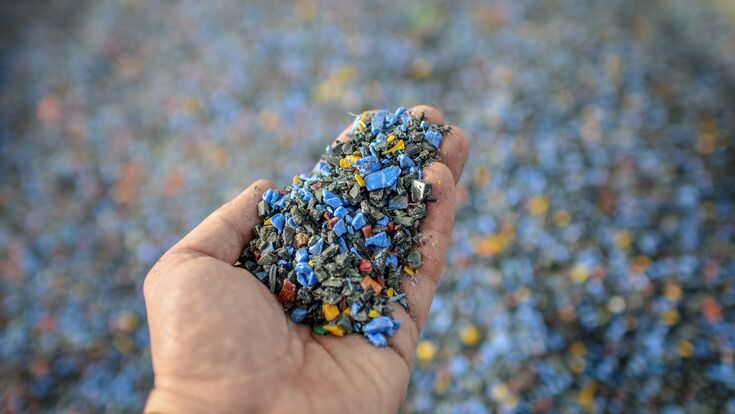Closing the loop : TOMRA showcases solutions to close the gaps at K exhibition

There are 8 gaps along the plastics value chain: design, data, alignment, affordability, quality, quantity, perception, and policy. At this year’s event, and under the phrase, “Mind the Gaps!”, TOMRA will address how it can enable closing the loop on plastics by focusing on 2 of the 8 gaps along the value chain: quality and quantity.
Today, both industry and society face rising costs for the use of virgin raw materials. Existing and new policy dictate higher recycled content targets and brand owners continue to make pledges to increase recycled content in their products. At the same time, there is not enough high-quality recyclate on the market to meet the growing consumer demand for plastic.
The combination of proven collection and sorting methods coupled with improvements in the advanced mechanical recycling (AMR) process can ensure closing the quality gap. Like mechanical recycling, AMR strives to maximize material yield and purity levels. However, it goes one step further with hot washing, deodorization, and super-cleaning steps, resulting in even higher quality and odorless recyclate that can be used in demanding applications. Such solutions will allow achieving high-quality recycling, both from source-separated waste and mixed waste streams. As all technologies necessary for these solutions exist and have led to successful results for decades, this is the quickest way to ensure that recyclers can receive the virgin quality recycled plastic that processors and packers need for their products. Of course, to achieve true circularity of plastic resources, these solutions must be applied at scale, which requires significant investment in infrastructure and technology.
To close the quantity gap, a large amount of waste, that would otherwise end up in landfills or incinerators, must be recovered. To do this, TOMRA offers customers its specialized solutions for plastics: AUTOSORT™, AUTOSORT™ FLAKE and INNOSORT™ FLAKE. These are field-proven technologies for the sorting of various plastic types, including flake sorting. Additionally, TOMRA Insight transforms daily operations into near-real time sorting data and uploads it to the cloud, turning the sorting process into a strategic management tool.
To significantly reduce reliance on fossil fuels, it is essential to produce sufficient amounts of recycled plastic material with virgin-like qualities. The good news is that collection and recovery systems such as Deposit Return Systems (DRS) and Mixed Waste Sorting (MWS) can help to achieve this. Paired with Advanced Mechanical Recycling (AMR) where necessary, the market will be well-equipped to meet the growing demand for high-quality recyclates.
For this year’s K exhibition, TOMRA has organized a series of talks, known as “TOMRA Talks”. Members of TOMRA, together with representatives of Borealis, ROAF management, and Worn Again Technologies, among other speakers, will cover current issues such as Advanced Mechanical Recycling (AMR), Mixed Waste Sorting (MWS), chemical recycling, and textile recycling. To see the full schedule, click here.
In addition to Recycling Sorting, this year TOMRA Public Affairs and Collection will be present on the stand. As experts in the field of policy, they will be available to answer questions about upcoming legislation as well as inform on topics such as Deposit Return Systems (DRS) and Reverse Vending Machines (RVM), which are machines where people can conveniently return empty beverage containers like bottles and cans for recycling.

